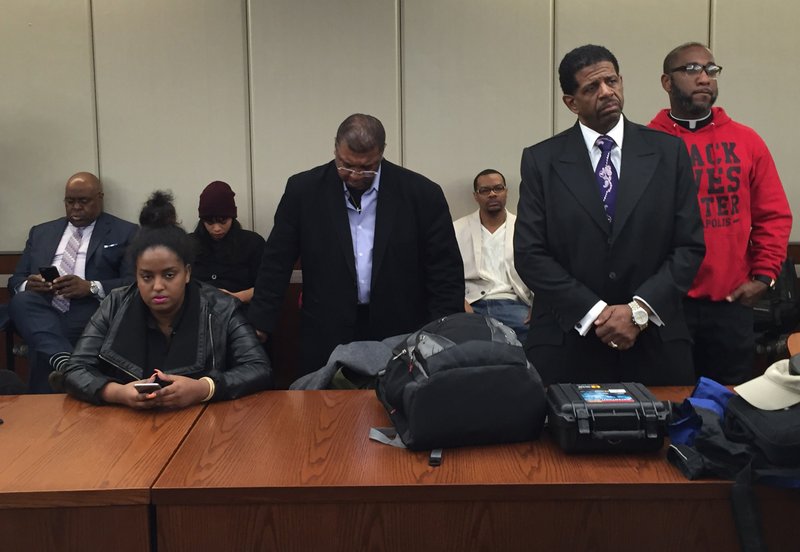MINNEAPOLIS -- Two white police officers involved in the fatal shooting of a black man last fall will not face criminal charges, a prosecutor announced Wednesday.
Hennepin County Attorney Mike Freeman said his decision not to charge the officers in the death of 24-year-old Jamar Clark was based on forensic evidence that showed Clark was not handcuffed and had attempted to grab an officer's weapon, which made the officers believe they were in mortal danger.
The prosecutor said Clark ignored warnings to take his hands off Mark Ringgenberg's gun and told Ringgenberg and officer Dustin Schwarze: "I'm ready to die."
Freeman described his decision, starting with accounts from police reports and witnesses. Community members who attended the presentation said the prosecutor relied too heavily on police accounts and disregarded what others said they saw.
"This is a fairy tale. None of this happened," said Mel Reeves, an organizer for a group called Twin Cities Coalition 4 Justice 4 Jamar Clark. "It's not justice. It sends us a clear message that the police are above the law."
Police union head Bob Kroll said the public should accept the results of the investigation. He appealed for calm.
Police encountered Clark early Nov. 15 after paramedics called for help from a scene where they were attempting to treat Clark's girlfriend after she was assaulted. The paramedics said Clark, the assault suspect, was interfering with their work and that they feared for their safety, Freeman said.
When police arrived, Clark kept putting his hands in his pockets and refused orders to show his hands, Freeman said. Officers tried to handcuff Clark but couldn't, and the handcuffs were dropped, he said.
Ringgenberg then took Clark to the ground and ended up on top of Clark, who was lying on his back. Ringgenberg's back was turned to Clark's stomach, Freeman said.
Ringgenberg felt his gun shift from his hip to the small of his back and reached back and felt Clark's hand on his weapon, Freeman said.
The officer said, "He's got my gun," Freeman said. Schwarze said he put his gun to the edge of Clark's mouth and warned him to let go or he would shoot. At that point, Clark looked directly at Schwarze and said he was ready to die, Freeman said.
Schwarze said the only thing he could do to save the lives of everyone in the area was to pull the trigger.
The shooting happened 61 seconds after police first approached, Freeman said.
Clark's blood-alcohol level was .09 percent, just above the legal limit to drive in Minnesota. His blood also contained THC, the active compound in marijuana.
Freeman called the handcuff question a key issue in the case and went into particular detail. Twenty civilian witnesses gave different versions of whether Clark was handcuffed. Of the 12 who said he was handcuffed, their stories differed and did not match the forensic evidence, Freeman said.
The prosecutor said he does not believe those witnesses were lying, explaining that it's not uncommon for people to have contradictory statements when observing chaotic situations and when they are at different vantage points.
Forensic evidence showed Clark had no bruising on his wrists consistent with being handcuffed, and his DNA was not found on the inside of the handcuffs, which were on the ground, Freeman said.
In addition, Clark's DNA was found on Ringgenberg's belt and on the grip of his gun.
Freeman, who decided earlier this month against taking the case to a grand jury, faced tough questioning from the public at his hourlong presentation, including from a woman who called his account "propaganda."
Activists rallied Wednesday at the site of Clark's shooting in north Minneapolis and at a park on the southeast side of downtown. The two groups then converged at the Hennepin County Government Center. The crowd there numbered in the hundreds but remained peaceful as activists chanted and speakers denounced Freeman's decision.
Information for this article was contributed by Doug Glass and Robin McDowell of The Associated Press.
A Section on 03/31/2016

